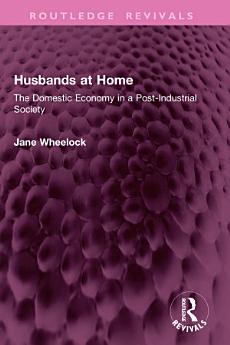Husbands at Home: The Domestic Economy in a Post-Industrial Society
About this ebook
Wheelock uses her research among families in North East England, an area of acute unemployment in traditional male industries, as a basis for this panoramic study. She provides extensive, empirical, and theoretical coverage of the household economy, linking it with the process of regional and global restructuring. The study challenges the assumptions made by economists that households operate on the basis of economic rationality. Including both men and women in her analysis, Wheelock underlines the contradictions arising from the need to reconcile conflicts between self-respect, traditional patriarchal views, and the rationality imposed by the market.
The book analyses the role of the state and benefit system in perpetuating gender ideologies, arguing that imaginative state policies could transform gender roles in a post-industrial society. This book will be useful to students in a variety of disciplines, including economics, sociology, and social policy, and will be a particular interest to those on women’s studies and regional studies courses.





